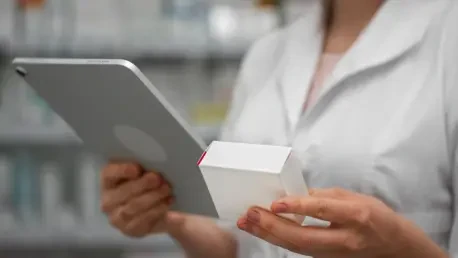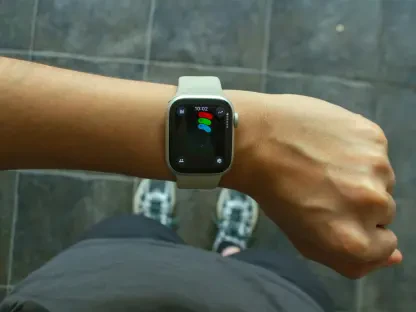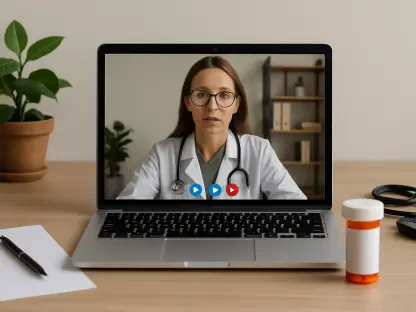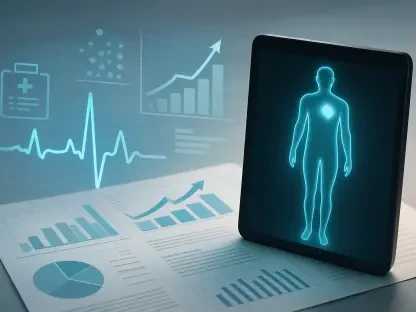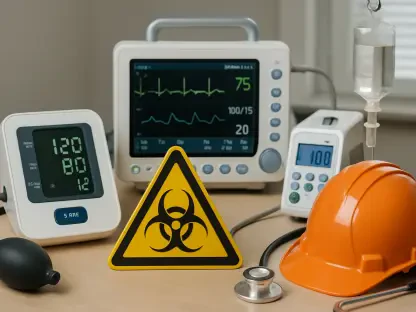The NHS app’s enhanced tracking feature for prescriptions promises a groundbreaking shift in how people in England manage their medications. This innovation mirrors the convenience of online shopping by offering Amazon-style tracking updates regarding prescription readiness and delivery status. The expected result is a notable reduction in the administrative burden currently experienced by pharmacies, which devote a substantial portion of their operations to handling inquiries from individuals eager to know when their prescriptions will be available. By diverting these inquiries away from pharmacies, this technological advancement is likely to enable pharmacists to concentrate more on crucial healthcare services and patient consultations, thereby optimizing overall health service efficiency.
Increasing Convenience for Patients
Enhancing Interaction with NHS App
The incorporation of prescription tracking into the NHS app represents a significant step toward improving patient engagement with their healthcare provider. Previously, the app lacked comprehensive tools for prescription management, which limited its functional interaction with users and the wider healthcare system. Now, patients can enjoy real-time updates on the status of their medications, fostering a more seamless and stress-free experience. This empowers users by providing them with essential information about their prescriptions without needing to physically visit or call pharmacies, which enhances the convenience of owning the app. As users increasingly rely on digital resources for their health needs, this development underscores the NHS’s commitment to modernizing healthcare delivery through technology.
Influence on Pharmacy Services
Community pharmacies, too, stand to benefit immensely from this technological enhancement. A substantial part of their workload has historically involved fielding calls and inquiries about prescription availability. By transferring these interactions to the app, pharmacies can repurpose their time and resources to focus on more meaningful activities, such as direct patient care and health advisory services. The expansion plan aims to integrate the tracking feature into 1,500 high street pharmacies initially, with an aspiration to include nearly 5,000 more within a year. Such widespread adoption is poised to transform pharmacy operations, liberating staff to concentrate on quality healthcare provision and advice rather than administrative tasks. This paradigm shift is lauded by pharmacy associations as potentially transformative for the industry.
Technological Integration in Healthcare
Adoption and User Base
The integration of prescription tracking aligns with a broader trend towards incorporating technology within healthcare systems, aimed at enhancing patient empowerment and administrative efficiency. The NHS app’s widespread acceptance, reflected by over 37 million registered users and impressive monthly active user statistics of about 11 million, underscores the growing inclination of healthcare consumers to engage digitally. By optimizing administrative processes, the app effectively bridges the gap between technology and patient needs, ensuring a more streamlined approach to healthcare services. Innovations like barcode technology for prescription collection have driven a remarkable 40% increase in repeat prescription orders from April 2025 onwards, showcasing the initiative’s practical benefits in transforming patient experiences.
Stakeholder Sentiments and Future Prospects
The sentiment surrounding the NHS app’s latest upgrade is overwhelmingly positive among stakeholders, including patients, pharmacists, and healthcare authorities. All parties recognize the potential this technology holds in reducing non-essential pharmacy visits and minimizing phone inquiries, which together contribute to a more efficient healthcare system. This enhancement not only improves the patient experience by offering transparency and convenience but also supports healthcare providers in delivering more focused care. As technological integrations continue to evolve, the potential for greater efficiency and a more engaged patient population becomes increasingly tangible, setting the stage for ongoing advancements and collaborations in digital healthcare service provision.
Transforming Healthcare Delivery
Empowering Pharmacists through Technology
One key outcome of the NHS app’s prescription tracking function is its ability to empower pharmacists by freeing them to attend more directly to healthcare provision rather than administrative duties. This shift is critical, as it allows pharmacists to better serve their communities’ health needs, engage in meaningful consultations, and offer substantial advice on medication use and health management. By easing the burden of routine inquiries, pharmacists can focus on fostering deeper patient relationships and ensuring the highest standards of care. The technology-driven support significantly enhances the efficiency of healthcare delivery and promises a more responsive and patient-centric approach in the industry.
Enhancing Patient Experience
Patients stand to gain substantially from the revolutionized prescription tracking feature by experiencing greater convenience in managing their healthcare needs. The app’s ability to provide timely alerts regarding prescription fulfillment reduces the uncertainty often associated with medication management. Users can trust the app for reliable updates, encouraging proactive healthcare management and an informed approach to wellbeing. The convenience factor also extends to remote prescription orders, as barcode integration facilitates swift and easy collection. This revolutionizes the customary way patients interact with pharmacies, as predictable access to medication aids adherence to prescribed regimes and ultimately improves health outcomes.
Future Implications of NHS App Advancements
Evolving Healthcare Dynamics
Looking ahead, the advancements within the NHS app illustrate a future where healthcare delivery is increasingly intertwined with digital innovations. The application of such technologies reassures users of a more responsive healthcare system that caters efficiently to their needs. As digital interactions become routine, healthcare providers might explore more progressive functionalities that cater to diverse health requirements, ensuring improved accessibility and convenience for all patients. The continued merging of technology with patient care underlines the NHS’s forward-thinking approach, setting a precedent for other healthcare systems worldwide to emulate and adapt in meeting ever-evolving patient expectations.
Sustaining Growth and Adoption
The latest upgrade of the NHS app has been met with widespread approval from a variety of stakeholders, including patients, pharmacists, and healthcare authorities. Everyone involved sees the vast potential of this technology to reduce unnecessary trips to the pharmacy and cut down on phone calls, which collectively help streamline the healthcare system. This enhancement not only elevates the patient experience by making healthcare more transparent and convenient, but it also aids healthcare providers in offering more specialized care. As technology continues to be integrated into healthcare, the possibilities for increased efficiency and a more involved patient community are becoming more evident. This sets a promising foundation for future advancements and collaborative efforts in digital healthcare service delivery. Increasingly, healthcare is heading towards more patient-centered approaches, driven by technology that supports not just treatment but prevention and continuous monitoring, encouraging individuals to engage actively with their health.
